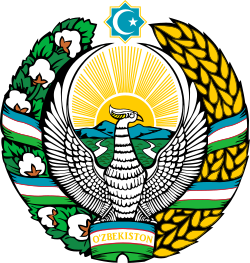| № |
University Board Deliberation
|
Download |
Download |
| 1. |
Academic Affairs Updates:
Discuss new programs, modifications to existing courses, and other curriculum-related matters.
Review and approve proposals for academic changes or introductions of new academic initiatives.
|
 |
 |
| 2. |
Scientific Research Reports:
Present updates on ongoing research projects and outcomes of recent research activities.
Deliberate on new research proposals and allocate funding where necessary.
Ensure compliance with ethical standards in research.
|
 |
 |
| 3. |
International Relations and Collaboration:
Evaluate current international partnerships and explore new opportunities for collaboration.
Report on study abroad programs, student and faculty exchange updates.
|
 |
 |
|
4.
|
Student Affairs:
Review policies and issues concerning student academic performance, services, and campus life.
Address specific cases of academic appeals or conduct violations.
|
 |
 |
| 5. |
Faculty Affairs:
Discuss faculty development programs, promotions, or any issues pertaining to faculty welfare.
Consider appointments, tenure, and sabbatical leaves.
Strategic Planning and Institutional Development:
Examine progress towards strategic goals and adjust plans accordingly.
Explore innovative approaches to teaching, learning, and technology integration.
|
 |
 |
| 6. |
Financial Oversight and Fund Allocation:
Review the university’s financial status and discuss budgetary allocations for departments and initiatives.
|
 |
 |
| 7. |
Problem Resolution:
Address any new or unresolved issues that affect the academic community.
|
 |
 |
| 8. |
Emerging Topics and Challenges:
Discuss any new challenges or opportunities that have arisen, such as shifts in educational demand or new legislation.
|
 |
 |
| 9. |
Open Forum:
Allow time for members to raise any other business not previously covered in the agenda.
|
 |
 |
|
10.
|
Quality Assurance and Accreditation:
Review accreditation requirements and status updates.
Discuss initiatives to enhance academic quality and standards.
|
 |
 |
|
11.
|
Community Engagement and Outreach:
Evaluate the university's role and contributions to the local community.
Plan and review outreach programs that enhance the institution’s public engagement.
|
 |
 |
|
12.
|
Innovations in Education:
Introduce and consider the adoption of new educational technologies and teaching methodologies.
Discuss the integration of online learning platforms and digital resources.
|
 |
 |
| 13. |
Sustainability and Environmental Policies:
Deliberate on the university's sustainability practices and policies.
Plan for the incorporation of sustainability into the curriculum and campus operations.
|
 |
 |
|
14.
|
Health and Safety on Campus:
Update and review policies on health and safety, especially in light of any recent events or changes in regulation.
Discuss mental health resources and support systems for students and staff.
|
 |
 |
|
15.
|
Diversity, Equity, and Inclusion Initiatives:
Assess the university's efforts in promoting an inclusive environment for all members of the community.
Review diversity and inclusion strategies and their effectiveness.
|
 |
 |
|
16.
|
Alumni Relations and Development:
Report on alumni engagement strategies and fundraising efforts.
Discuss potential alumni contributions to academic and extracurricular programs.
|
 |
 |
|
17.
|
Library and Learning Resources:
Evaluate the adequacy and development of library resources and learning materials.
Consider expansions or enhancements to library services and digital access.
|
 |
 |
|
18.
|
Faculty and Student Publications and Conferences:
Celebrate recent publications and presentations by faculty and students.
Discuss support for ongoing and future scholarly work and conference participation.
|
 |
 |
|
19.
|
Risk Management and Compliance:
Review any potential risks to the institution, including legal, financial, and reputational risks.
Ensure compliance with governmental regulations and university policies.
|
 |
 |
|
20.
|
Campus Infrastructure and Facilities:
Discuss current and future needs regarding campus infrastructure, including building projects and maintenance.
Information Technology (IT) Infrastructure:
Review the state of the university’s IT infrastructure and any needs for upgrades or enhancements.
|
 |
 |
|
21.
|
Recognition and Awards:
Acknowledge significant achievements of students, faculty, and staff.
Plan for award ceremonies and recognition events.
|
 |
 |




